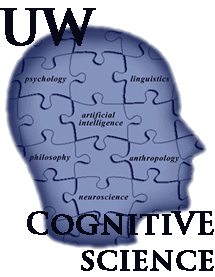About Cognitive Allegory
Narrative: An elemental cognitive strategy--universally practiced in all cultures to encode and propogate knowledge, and to entertain.
Analogy: An elemental cognitive strategy--universally practiced by all humans to understand, explain, and extend knowledge.
Allegory: A narrative structure following analogic grooves. The seventeenth century story of Pilgrim's Progress, for instance, perhaps the most famous allegory in English, follows the analogic narrative structure, LIFE : JOURNEY, populated by analogic characters (DOUBT : GIANT, HOPE : COMPANION), with analogic materials (SIN : BURDEN, PROMISE : KEY), in analogic settings (DESPONDENCY : SLOUGH, HEAVEN : CITY). But the allegorical tradition stretches from pre-literate antiquity (echoed, for instance, in the Iliad's shield of Achilles) to post-modern cool (the Mac vs. PC ads). The medieval period, significantly at the cusp of oral and literate cognitive styles, is particularly rich in allegory.













